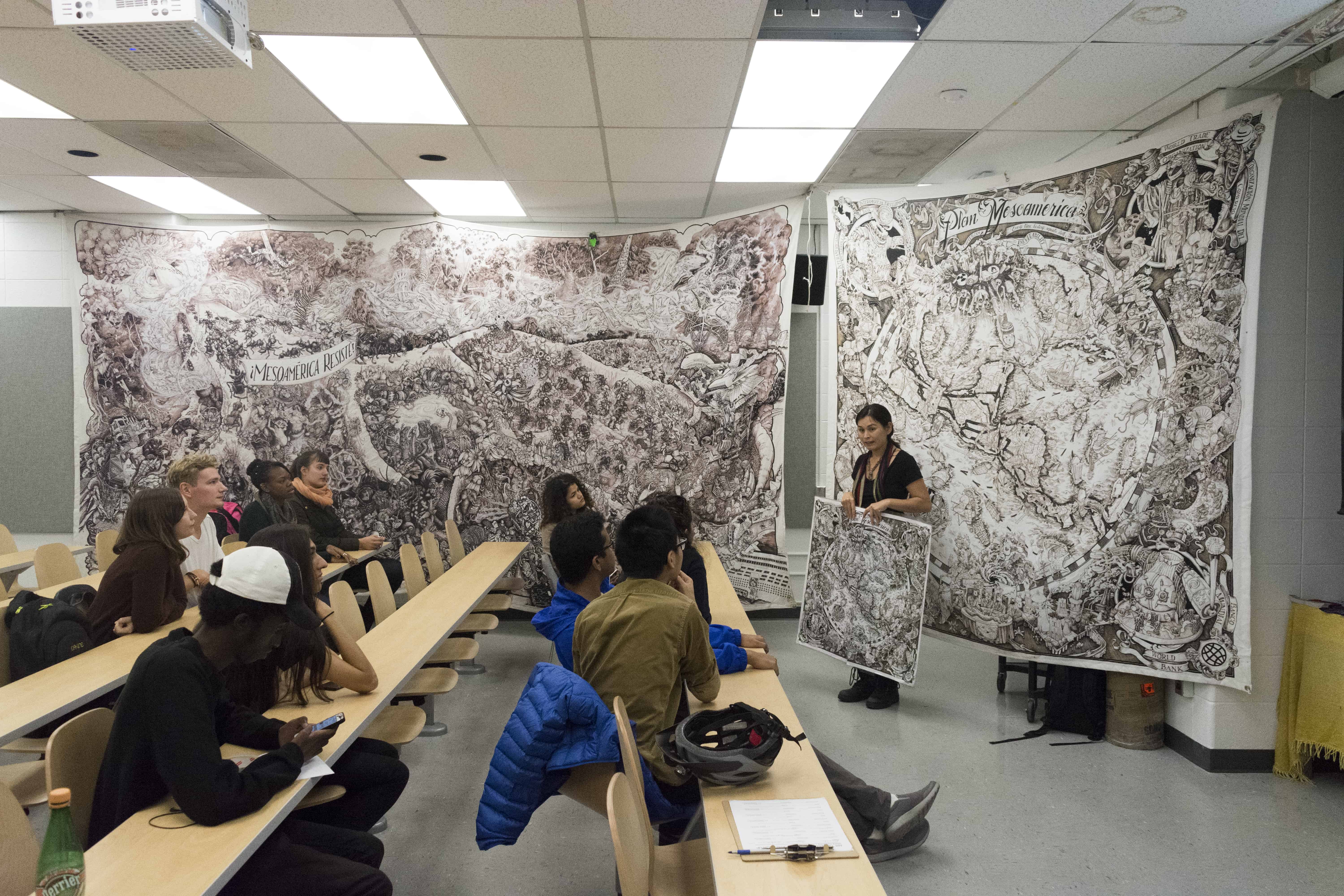eXpression Against Oppression (XAO), an annual week of events aimed at challenging oppression and giving voice to marginalized people, took place last week. Issues addressed included a panel discussion on bans of burkinis in various jurisdictions, a screening of a documentary on queer women of colour, and various events focusing on the role of artistic expression in combatting oppression.
In a statement to The Varsity, UTSU Vice-President Equity Farah Noori explained that XAO puts together a “series of events that aim to challenge oppressions by creating spaces for marginalized communities to come together and engage in critical discussions regarding the systems set in place to oppress them.”
The Varsity also spoke with UTSU President Jasmine Wong Denike, who emphasized the role of “artistic expression” and creating “spaces in which marginalized voices can be heard.”
The importance of art in anti-oppression practices was echoed by Frishta Bastan, who facilitated the “Poetic Resistance” event on November 16. She emphasized that XAO events were important at U of T as they provide a space where “narratives that aren’t necessarily mainstream are heard.”
Denike highlighted “Ban the Burkini Ban: Liberation is Within my Choice”, a panel discussion on November 14 organized in collaboration with the Muslim Students’ Association, as “very well-attended,” while other events had lower turnouts.
When asked about the November 10 town hall on anti-Black racism that precipitated the cancellation of XAO’s “Confronting Anti-Blackness at UofT Town Hall,” both Noori and Denike conceded that the first town hall’s poor attendance was attributable to failures within the executive.
Noori stated that “UTSU executives should have done better,” pointing out missed opportunities to collaborate with other campus groups and “put more effort into outreach.”
Similar sentiments were expressed by Denike, who stated that UTSU “could have done a better job of engaging Black student groups, which we largely failed to do.”
Although neither Denike nor Noori were able to provide a concrete timeline for when the next town hall on anti-Black racism would take place, Noori stated that Black student organizations with recognized club status and UTSU membership would be consulted.
When asked about the allegations made by the Black Liberation Collective (BLC) of how UTSU’s intentions in organizing the town halls were “nothing more than the UTSU pretending to address their antiblackness for good PR,” Denike emphasized that “it’s not true that the town hall was about PR” nor “about winning the approval of the BLC.”
Denike went on to say that UTSU was “taking the allegations against us seriously,” and that the intention behind the town hall “was to give our Black members an opportunity to express their concerns. We’re still committed to that.”
Noori stated that moving forward, the “UTSU will put more effort into ensuring we execute proper and genuine spaces for Black students to voice their concerns of the organization.”
Denike reiterated the importance of the criticisms launched against the UTSU, conceding that it “is a big, bureaucratic organization that maybe isn’t very good at doing everything itself,” and “it’s telling that our most well-attended event was done in collaboration with another group.”
Denike concluded: “Maybe we should stop resisting the fact that, at a school like U of T, a students’ union can do the most good by working with and supporting other groups.”


